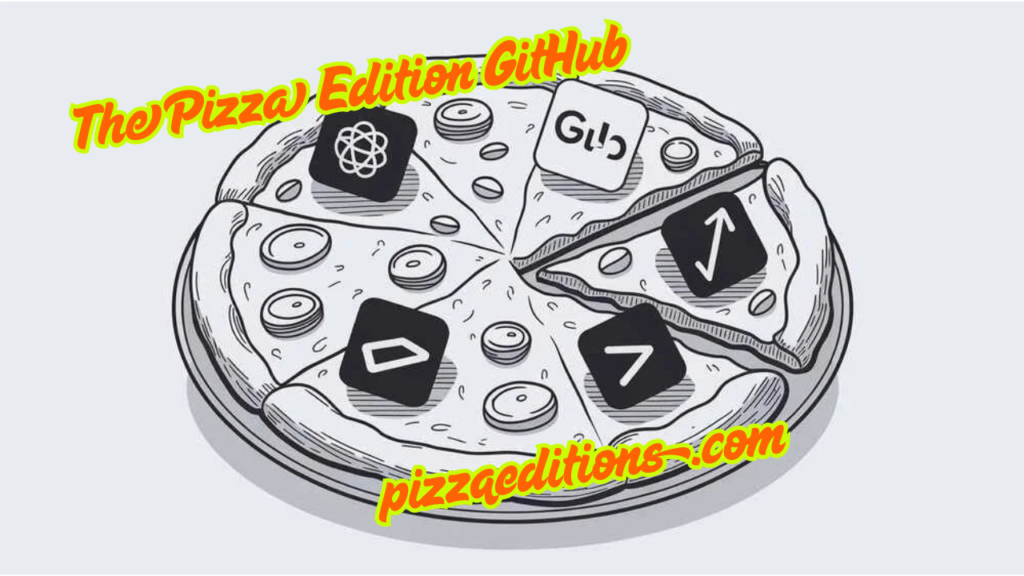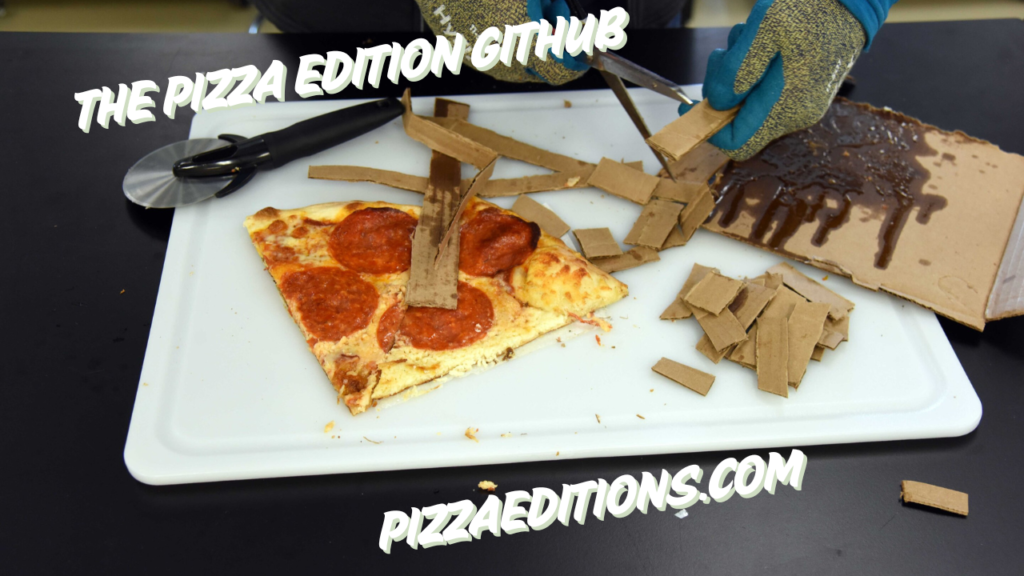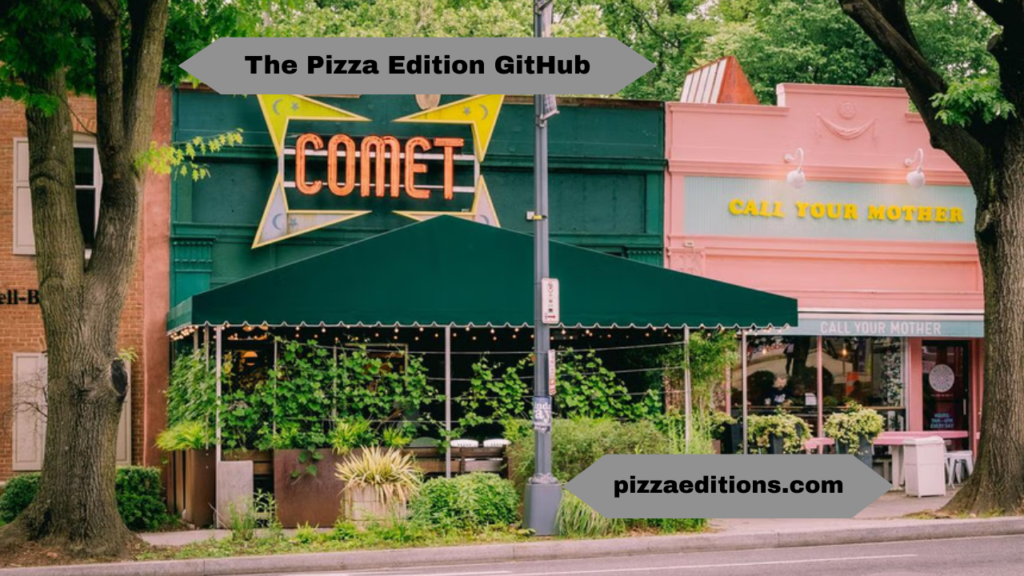Introduction: When Code Meets Crust
In the vast and serious world of software development, where open-source repositories on GitHub power much of the digital universe, every so often, a quirky gem pops up that captures the hearts (and stomachs) of developers. “The Pizza Edition GitHub: A Deep Dive into the Quirky Open-Source Repository, ??, Tech Meets Toppings” is one such treasure—a delightful blend of humor, code, and culinary obsession. It’s more than just a funny corner of GitHub; it’s a living, breathing proof that creativity, collaboration, and a shared love for pizza can fuel some truly imaginative projects.
In this article, we’re diving into this unique repository, exploring its origins, components, community, and cultural impact. Whether you’re a developer who thrives on code commits or a pizza aficionado looking for something fresh from the oven of the internet, there’s a slice for everyone here.
The Origins of “The Pizza Edition GitHub”

To understand the magic behind this quirky open-source repository, you have to go back to the inspiration that started it all: the intersection of tech and a universal comfort food—pizza. Somewhere between hackathons, late-night debugging, and caffeine-fueled sprints, developers turned their pizza-fueled jokes into functional (and semi-functional) code.
The Pizza Edition GitHub started as an inside joke—a themed variation on well-known libraries, tools, or tutorials, but with a twist: everything was somehow about pizza. The idea quickly snowballed. Developers began contributing their own pizza-themed forks, frameworks, and mock-APIs, and before long, what began as parody transformed into an ecosystem of humorous-yet-intriguing code.
What’s in the Pizza Box? Repository Highlights

The content of the Pizza Edition GitHub is as eclectic and whimsical as a topping-loaded pie. Here’s a look at what makes it tick:
1. PizzaScript: The Syntactic Supreme
One of the most infamous components is PizzaScript, a parody programming language where syntax mimics pizza orders. Variables are called toppings, functions are slices, and every code block must end with a “bake()” call. While not practically usable in production, it offers a hilarious entry point for understanding language construction and compiler theory.
pizzascriptCopyEditstartOrder:
topping pepperoni;
slice cookTime(10);
bake();
endOrder;
Ridiculous? Absolutely. But clever enough to be used in educational workshops as a fun way to explain how compilers work.
2. PizzaML: Machine Learning for Your Pie
PizzaML is a mock machine learning library that predicts your favorite pizza based on wildly arbitrary inputs like your favorite IDE or the number of semicolons in your last commit. It might not beat TensorFlow in a benchmark, but it sure beats it in laughs.
3. APIzza: REST APIs for Toppings
APIzza simulates a full REST API that lets you create, read, update, and delete pizza configurations. Want a pizza with only left-half jalapeños and AI-curated sauce? There’s a POST /pizza/custom for that. While it serves no real-world function, developers can use it as a dummy API to practice front-end skills with delicious JSON data.
A Community That’s Cheesy by Choice
Like every great GitHub project, the real strength of The Pizza Edition GitHub lies in its contributors. What started as a lone developer’s whimsy has turned into a vibrant, slightly cheesy (pun intended) community. Contributors come from all over the world, bringing new ideas, jokes, and even real-world pizza-related tech concepts.
The project maintains an open contribution policy, with pull requests that range from fixing spelling errors in mock documentation to full-fledged forks of real tech projects reimagined with pizza themes. The tone in discussions is friendly, the code reviews are light-hearted, and there’s even a dedicated Discord server where discussions range from favorite pizza chains to the ethics of pineapple on pizza.
Pizza with a Side of Satire: Commentary Through Code

Beneath the gooey surface of mozzarella lies a surprisingly smart layer of satire. The Pizza Edition GitHub serves as a cheeky commentary on the sometimes over-serious tone of software development. It parodies:
- The proliferation of unnecessary frameworks (e.g., “Pizza.js – The One True Crust Framework”).
- Over-engineered APIs (“Slice-as-a-Service” anyone?).
- Documentation overload (complete with “pizza diagrams” and fake UML charts showing how toppings inherit flavor).
By wrapping these tropes in a humorous pizza metaphor, the repo cleverly critiques real challenges in the dev world without ever coming off as cynical.
Education Through Edible Analogies
Interestingly, some educators have started using elements of The Pizza Edition GitHub in coding bootcamps and beginner courses. The silly metaphors help reduce the intimidation factor of complex topics. Teaching recursion through “infinite crust layers” or introducing RESTful architecture via pizza delivery workflows might seem odd, but it works—especially for visual and analogy-driven learners.
This fusion of humor and pedagogy is what sets the project apart. It’s not just a joke; it’s a new kind of learning experience.
Cultural Impact and Memetic Evolution
No quirky tech project is complete without memes—and this one is full of them. From GitHub issues turned into meme threads to contributions that include ASCII pizza art and full README files styled like menus, the cultural layer is rich and constantly evolving.
Memes like “I deployed a pizza to Kubernetes and now my cluster is saucy” or “Dockerize your deep-dish deployment” are now a part of the broader dev meme culture, and you’ll see stickers, t-shirts, and even laptop decals referencing the Pizza Edition.
It’s become a little slice of joy that follows devs into their real-life workspaces.
Why It Matters: More Than a Gimmick
Some might brush it off as just another internet oddity, but “The Pizza Edition GitHub: A Deep Dive into the Quirky Open-Source Repository, ??, Tech Meets Toppings” reflects something deeper: the human side of tech. The laughter, the creativity, the shared jokes, and the collaborative spirit all point to a powerful truth—technology isn’t just code, it’s culture.
Amidst the pull requests, CI/CD pipelines, and sprint reviews, developers crave moments of fun and expression. The Pizza Edition GitHub gives them exactly that—a safe, silly, smart space to play.
Final Slice: Will You Contribute?
As open-source continues to shape the future of technology, projects like this remind us that not every repo needs to change the world—some just need to change your mood. So if you’ve got an idea for a new pizza-themed framework, or if you just want to learn through laughter, this is your invitation to clone the repo, fork it, and bake up something bizarre.
After all, in the end, software development is a lot like pizza—best when shared, made with care, and enjoyed by all.
Also Read : Fun88ml.com: A Detailed Insight into the Online Gambling Platform
